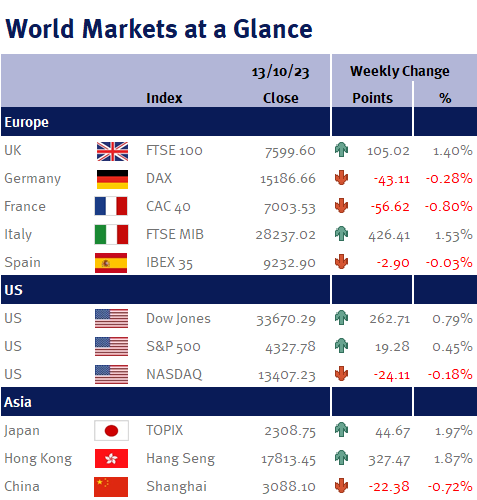Minutes released on Wednesday from the US Federal Reserve’s September meeting showed policy makers continue to proceed with caution considering economic uncertainties and increasing wholesale prices. The focus fell on the duration of rate holds rather than their height with some officials grappling with the unpredictability of economic data and the unclear consequences of previous Fed interest rate hikes. While some data hints at a deceleration in inflation, most Fed officials remain vigilant about potential surges, especially in global oil markets and unexpected spikes in food prices.
The heavily anticipated US CPI report for September 2023 showed a 0.4% increase from August, slightly exceeding economists’ expectations of a 0.3% rise. The annual CPI inflation rate remained at 3.7%, whilst the core annual inflation rate was 4.1%, marking it the slowest pace in two years. A reacceleration in shelter inflation and higher fuel prices were the main contributors to the monthly increase. But since September, fuel prices have dropped significantly. And the sharp decline in price increases for newly signed rents suggests that shelter inflation, which makes up about a third of the overall CPI index, will moderate in the months ahead.
Value stocks performed well following impressive results from JPMorgan, Wells Fargo, and Citigroup which reported strong Q3 earnings. JPMorgan Chase led the way with a remarkable 35% profit surge, demonstrating the resilience of the banking sector as it continues to benefit from a higher rate environment, despite jitters earlier on in the year.
Positively, UK GDP data showed the economy is more resilient than expected, with modest economic recovery in August 2023 after a sharp drop in July. The economy expanded by 0.2%, led by growth in services which offset falls in manufacturing and construction. Meanwhile, in Marrakech, Bank of England Governor Andrew Bailey cautiously expressed optimism about interest rates. He recognized substantial improvements in controlling inflation, thanks to elevated interest rates, which led to a reduction in inflation to its lowest level in 18 months at 6.7%. Nevertheless, given that inflation remains above the 2% target and there has been a pause in the cost of borrowing at 5.25% after 14 consecutive rate hikes in September, Bailey emphasized the necessity of maintaining a prudent approach.
European shares felt pressure as global energy prices rose this week. Over in Ireland, the CPI index rose by 6.4% in September 2023 up from 6.3% in the previous month as price pressures persisted across the Eurozone. However, the European Central Bank (ECB) has indicated that interest rates might have peaked, with President Christine Lagarde noting that the eurozone was close to reaching its 2% target.
Investors in the coming week will get a look at the state of US consumers, whose spending drives around two-thirds of the economy, with US retail sales report and earnings due from Procter & Gamble, Netflix and a slew of banks. Also due out this coming week are UK unemployment rate, retail sales and inflation data, Eurozone balance of trade US industrial production and Chinese GDP, industrial production and retail sales.
Kate Mimnagh, Portfolio Economist


